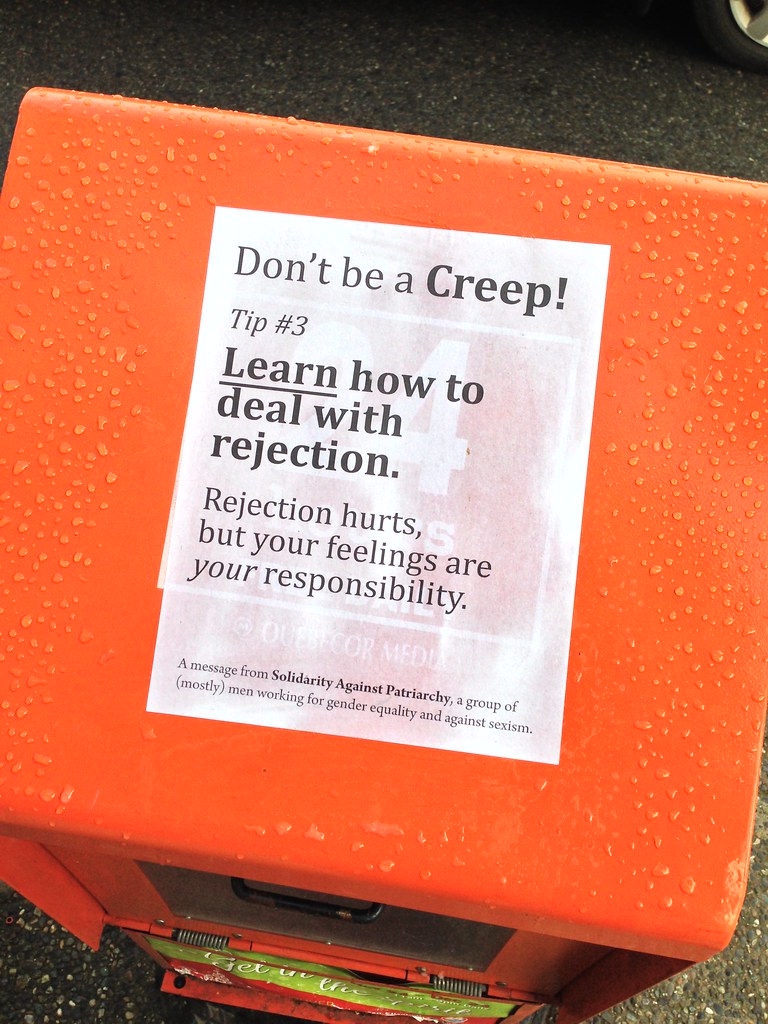Have you ever found yourself inexplicably drawn to someone who just doesn’t seem to reciprocate your feelings? It’s a common scenario that many of us have encountered at some point in our lives. There’s Mr. Nice Guy, the one who’s got all the qualities you’d list on paper as perfect partner material – he’s cute, sweet, interesting, smart, and he’s into you. But for some reason, you’re just not feeling it. Then there’s Mr. Bad Guy, the one who’s equally charming and perhaps even more intriguing because he’s not available or interested. And yet, he’s the one who occupies your thoughts day and night. It’s a perplexing situation, isn’t it?
Understanding Rejection and Its Impact
Brit Brogaard, in her feature for Your Tango, sheds light on this phenomenon, explaining the power of fantasy fueled by rejection. She delves into the reasons behind our obsession with those who don’t want us, and it turns out, there’s quite a bit of science involved. According to research by Helen Fisher and her team, romantic rejection activates parts of the brain associated with motivation, reward, addiction, and cravings. It’s like being hooked on a drug, and that drug is the person who keeps saying no. The study, published in the Journal of Neurophysiology, used functional MRI scans to observe the brains of individuals who had been rejected but still felt intensely in love. The findings were revealing – rejection can be as potent and painful as a breakup.
What does this have to do with men and attractiveness? Well, it turns out that handling rejection well is a trait that’s highly appealing. Jonathan Peykar, in his article, discusses the ‘Subtle Principles of Rejection’ and how turning rejections into a positive experience can significantly enhance a man’s attractiveness. He shares his own journey of facing rejection in clubs at nineteen and how those experiences shaped him.
Principle 1 is about understanding that you can’t control who will like you. The dating industry might promise you the moon, but the reality is that attraction is spontaneous and can’t be forced.
Principle 2 is about learning from feedback. Instead of getting angry or blaming the world, successful men take rejection as a chance to grow. They understand that mistakes are part of the learning process and that every ‘no’ is an opportunity to become smarter about relationships.
Principle 3 distinguishes between rejection as feedback and meaningless air. Sometimes, rejection is a lesson in disguise, and other times, it’s simply a case of not being the right fit – and that’s okay.
Principle 4 advises against overanalyzing rejections. Overthinking can lead to stress, pain, and depression. Instead, Peykar suggests moving forward and continuing to meet new people. Growth takes time, and rejections are part of the journey. His conclusion is a call to patience and persistence, assuring that the lessons learned from rejections will eventually pay off.
Why is taking rejection well such an attractive trait for a man to have? It’s a sign of confidence, resilience, and emotional intelligence. It shows that a man can handle life’s ups and downs with grace and that he’s not easily discouraged. It’s a trait that suggests maturity and a strong sense of self-worth, qualities that are undeniably attractive.
In the next section, we’ll explore how men can transform rejection into personal growth and attractiveness. We’ll look at practical ways to deal with rejection positively and how this approach can not only improve one’s love life but also enhance overall well-being and success.

Transforming Rejection into Growth and Attractiveness
Transforming rejection into a personal growth journey and a magnet for attractiveness is not just about bouncing back; it’s about bouncing forward. It’s about taking those hard knocks and using them as stepping stones to become a more compelling, confident, and self-aware individual.
Let’s dive into the practical ways to deal with rejection positively and how this approach can not only improve one’s love life but also enhance overall well-being and success.
It’s essential to recognize that rejection is not a reflection of your worth as a person. It’s a natural part of life and, more specifically, the dating process. Everyone faces rejection at some point, and it’s not exclusive to those who are lacking in any way. It’s simply a mismatch of wants, needs, or circumstances.
When faced with rejection, take a moment to acknowledge your feelings. It’s okay to feel disappointed, hurt, or even angry. However, it’s crucial to process these emotions in a healthy way. Avoid lashing out or dwelling on negative thoughts. Instead, use this as an opportunity to reflect on what you can learn from the experience.
Reflection is a powerful tool. Ask yourself what you can take away from the situation. Was there something about your approach that could be improved? Did you perhaps come on too strong, or not strong enough? Or maybe there’s nothing you could have done differently, and it’s simply a case of not being the right fit. Understanding the difference is key to personal growth.
Another vital aspect of transforming rejection is to maintain a positive outlook. This doesn’t mean you have to be happy about being rejected, but rather that you keep an optimistic view of your future dating experiences. Believe that there’s someone out there who’s a better match for you and that each rejection brings you one step closer to finding them.
Networking and socializing play a significant role in overcoming rejection. Continue to meet new people and expand your social circle. Not only does this increase your chances of meeting someone you’re compatible with, but it also helps you refine your social skills. Being sociable and approachable is inherently attractive, and it’s a trait that can be honed through practice.
Self-improvement is another attractive byproduct of dealing with rejection. Use the time after a rejection to work on yourself. Whether it’s hitting the gym, picking up a new hobby, or advancing your career, self-improvement is attractive. It shows that you’re not waiting around for someone to complete you; you’re taking charge of your life and making the most of it.
Remember, it’s not about changing who you are to fit someone else’s mold. It’s about being the best version of yourself. This means staying true to your values and beliefs while also being open to growth and change.
It’s important to practice gratitude. Be thankful for the experiences that have shaped you, even the rejections. Gratitude can shift your perspective from one of scarcity to one of abundance, which is a much more attractive mindset.
Share your experiences with others. Whether it’s through writing, speaking, or simply having a conversation with a friend, sharing your journey can be cathartic. It can also help others who are going through similar situations and establish you as someone who is not only resilient but also generous and empathetic.
Rejection is not the end of the road; it’s just a detour on the journey to finding a compatible partner. By embracing rejection as an opportunity for personal growth, you become more attractive not just to potential partners, but to everyone around you. Your resilience, optimism, and self-improvement efforts will shine through, making you an irresistible force in the dating world and beyond.
The next time you face rejection, remember that it’s not a setback; it’s a set-up for a comeback. It’s your chance to grow, to improve, and to become even more attractive than you already are. Keep your head high, your heart open, and your journey forward.
Related posts:
Why We Get So Obsessed With Crushes Who Don’t Want Us
Irresistible Men Are 10x More Attractive Because They Know The Subtle Principles Of Rejection
Why Do We Want the People We Cant Have? 9 Reasons





